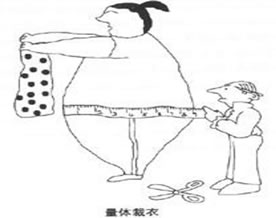信息时代(The Information Age)英语作文
信息时代(The information age)
'Knowledge is power.' This is more obviously true with the advent(到来) of the information age. With the rapid development of science and technology, man's knowledge is increasing very quickly. More and more books and scientific papers are published every year. It is said that the total of man's knowledge doubles every ten years. Besides, information spreads very quickly through television and computer networks, and people in different countries can share their knowledge and information in a fantastic(惊人的) short period. Like population explosion, information explosion in our times.
At the beginning of the industrial revolution, a country's comparative(相对的,比较的) advantage depended largely on the natural resources endowed(天生具有) by nature. Then, people experienced several phases(阶段) in industry revolution: the primary industry(agriculture), the secondary industry(manufacturing 工业), and the tertiary(第三的) industry(服务). Now, we are in the fourth industry stage----the information industry.
It is argued that in future people should no longer be classified(分类的) as white collars(衣领) or blue collars, but rather as knowledge or non-knowledge workers. The knowledge workers can not only read and write, and perform rote(死记硬背) tasks, they must meet the basic requirements(需要) of computer literacy(读写能力) and constantly(不断地) conceive(想象,构想) new way to match(相适合) the changing demands of increasing productivity(生产率,生产力).
It is people mastering the most advanced knowledge who will take the lead. Systems developers(开发者), computer scientists and programmers, management analysts and inventors are in most demand in the industry countries.
The challenge(挑战) facing every country is to resuscitate(复苏) its investment(投资) and training. The only way to get greater knowledge is though education and training. Knowledge, like capital(首都) and material resources, has become an essential(不可缺的) factor of production. Therefore, the educational system of a society ought to enable its members to make a rapid transition(过渡) to adapt to the knowledge-based war. Otherwise, that society will inevitably(不可避免的) lag(落后) behind.
hxw.red
